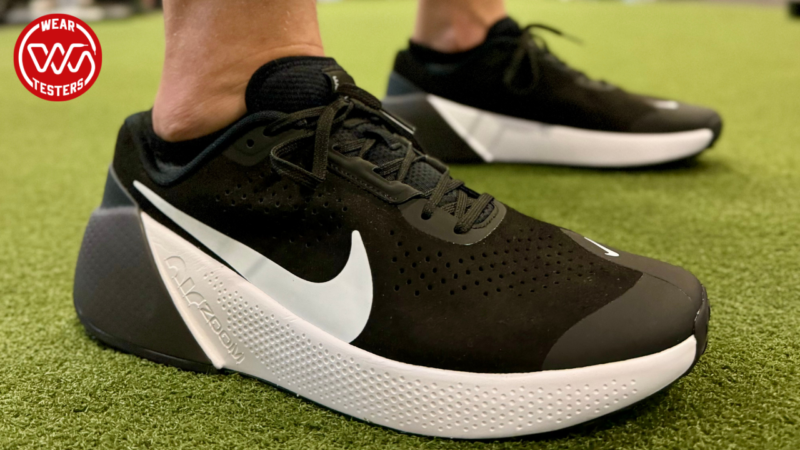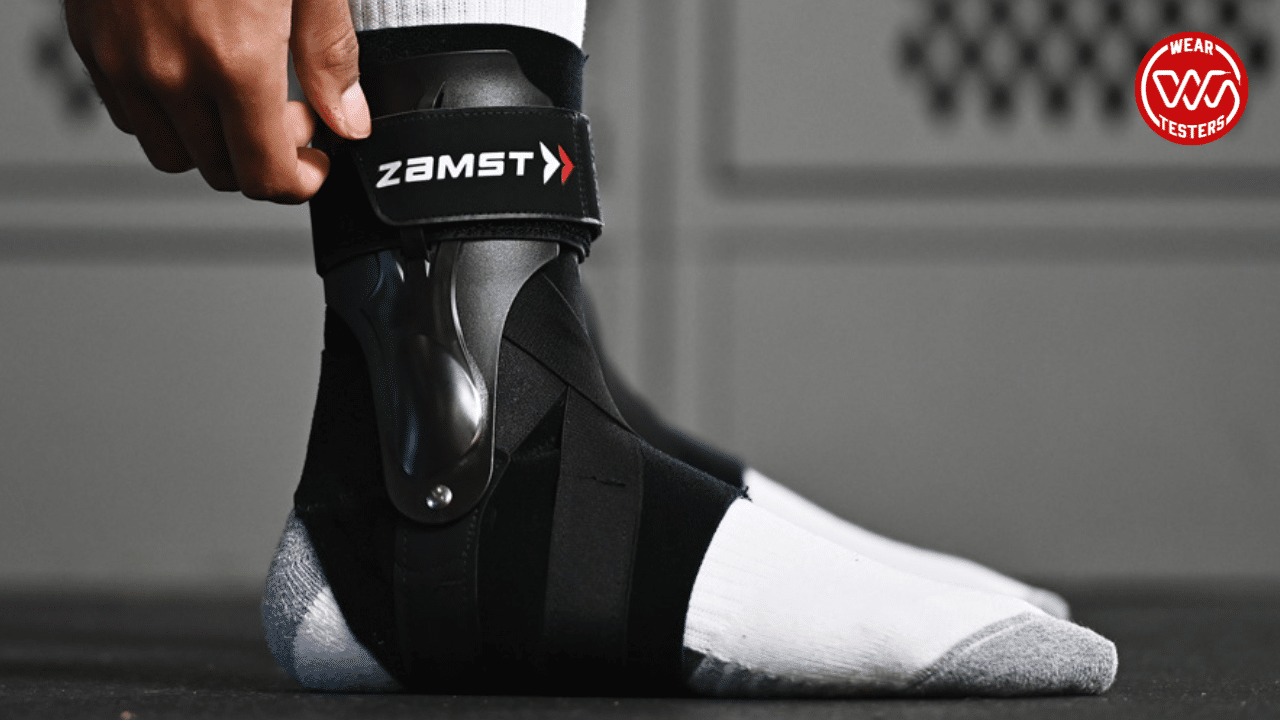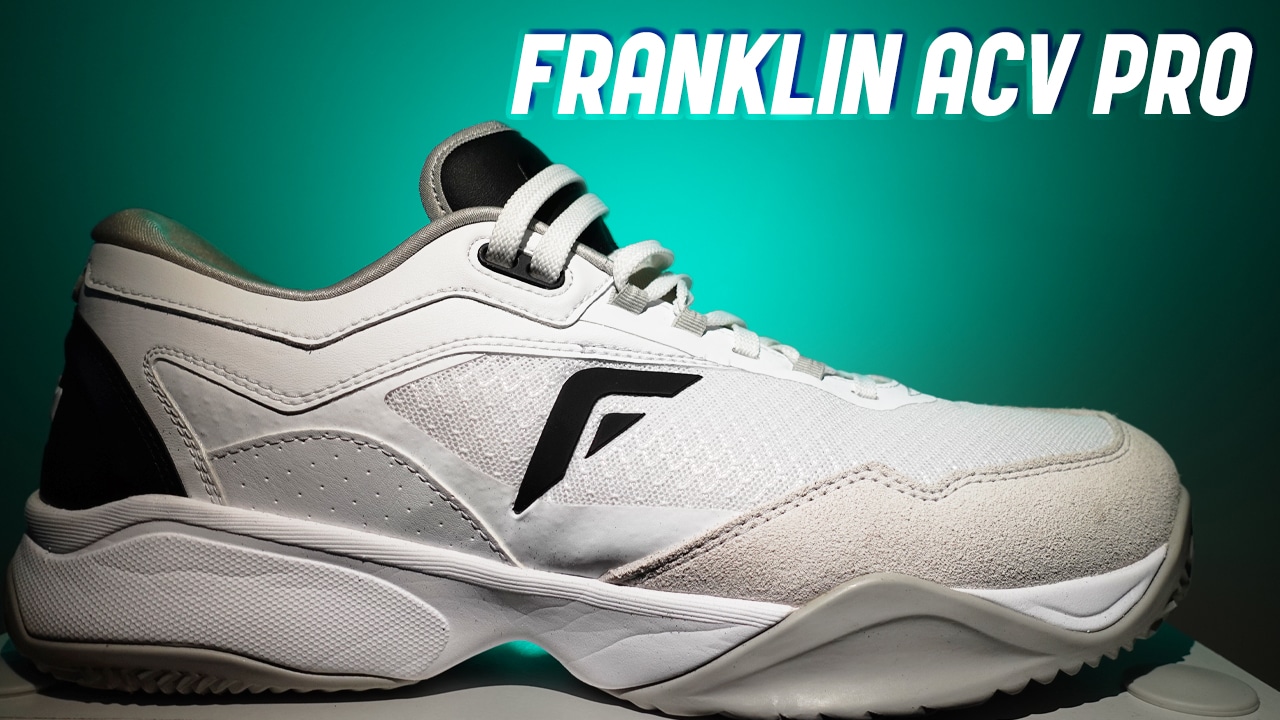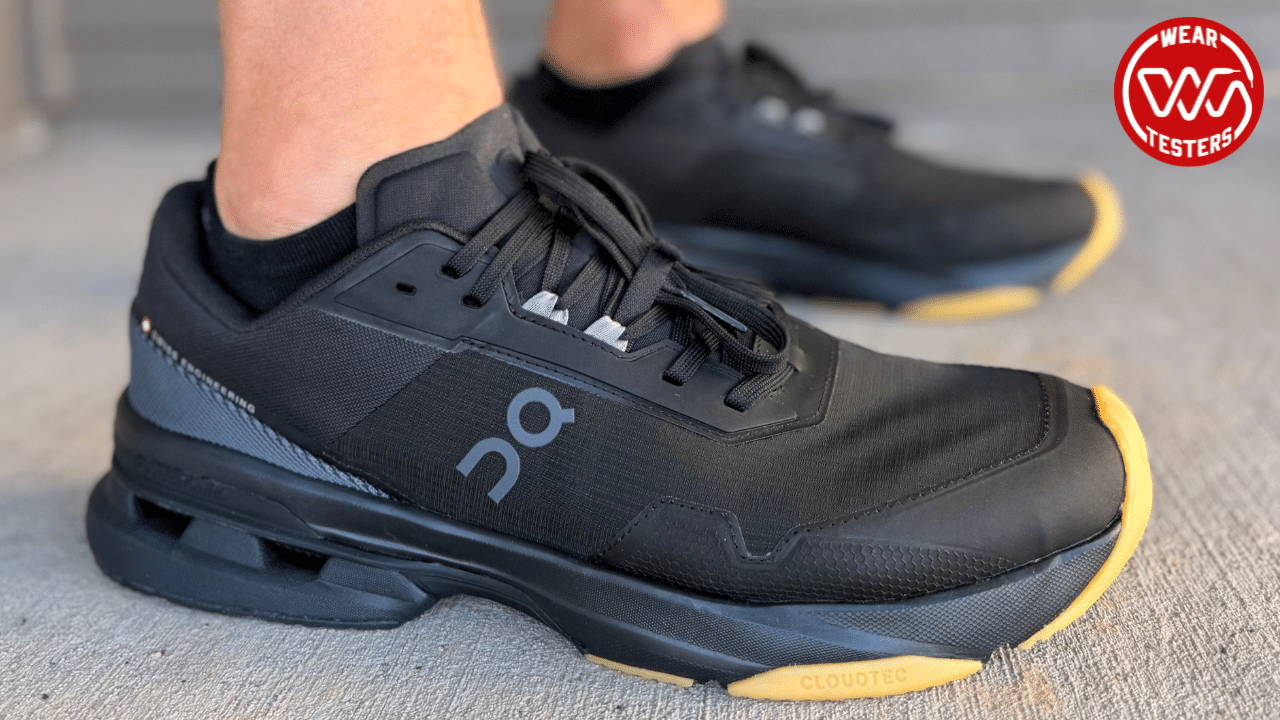Sometimes big brands decide to do something entirely new – like the Nike Air Zoom TR 1, the Swoosh’s new training shoe that lives alongside their flagship Metcon line. It arrived on shelves seemingly without any hype and has been a bit confusing to several athletes who have tested the shoe.
Shoe companies are often in a “damned if you do, damned if you don’t relationship with their customers. For every model, there’s an audience who loves that model best and there’s a remaining segment who want it to change. So, each time you iterate a new model of a training shoe – like let’s say the Nike Metcon 9 – you lose some fans and you gain some fans. In a perfect world, every model would be available so we could all use the one right for us, but in the real world, there’s a ton of cost, logistics, and frankly, waste associated with that.
We at the WearTesters were thrilled when the folks at Nike sent us a couple of pairs of the Nike Air Zoom TR 1 to test out. We always applaud brands for trying something new. It’s the only way for training footwear to move forward.
Though Nike was kind enough to send us some pairs of the Nike Air Zoom TR 1, the company had no involvement in this review, didn’t receive an advance look at it, and has not attempted to influence this review.
Nike Air Zoom TR 1
Price: $130
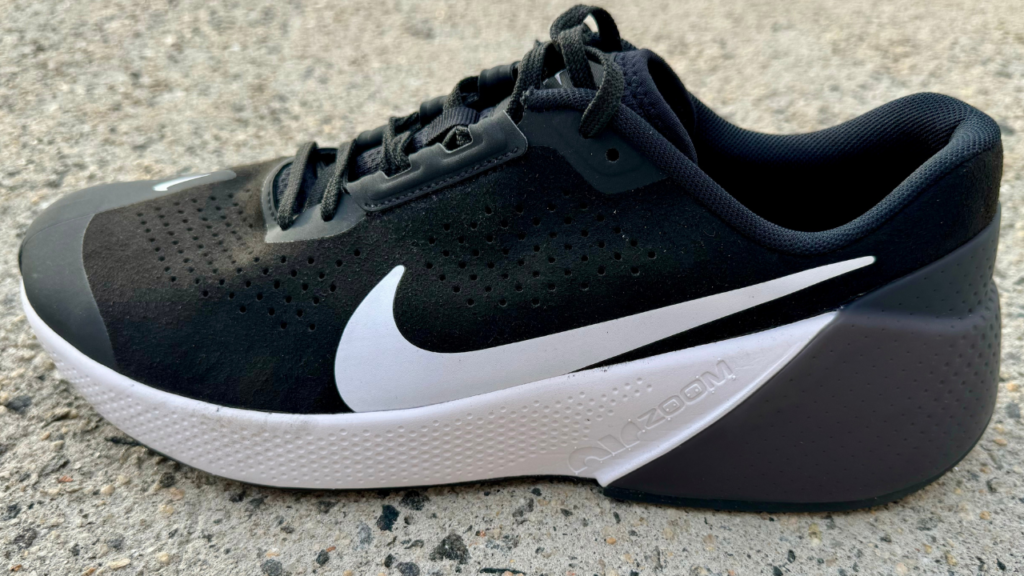
How Do the Authors Train?
Arune Singh (age 42, 5’11”, 210lbs): Trains daily with functional fitness programming from Deadboys Fitness, founded by Colby “Seth Rollins” Lopez and Josh Gallegos, along with logging 30-40 miles of running per week. He also has a medical history of Sleep Apnea and Myasthenia Gravis, meaning Arune’s focus is on lean muscle mass.
Drew Whitcomb (age 41, 6’6″ 195lbs): Trains daily with a focus on running, strength training, and mobility. He writes the majority of our running shoe reviews and runs a lot of miles both due to testing needs and his growing affinity for long-distance races. He recently completed the London Marathon. More marathons, half-marathons, 10k, and 5k races are in his future. His strength training and mobility regimen center around maintaining flexibility and lifting heavy to build power as a counterbalance to all the long-distance running he’s doing. His number one focus is staying injury-free so he can keep up the sweet gig of reviewing shoes for a living.
What is the Nike Air Zoom TR 1?
Nike describes it as:
Gains aren’t given, they’re earned. Go get what’s yours. We spring-loaded this do-it-all trainer with responsiveness for surges of off-the-rack energy. It can withstand the rigors of high-intensity exertion while sticking with you as you wind your way through the everyday paces.
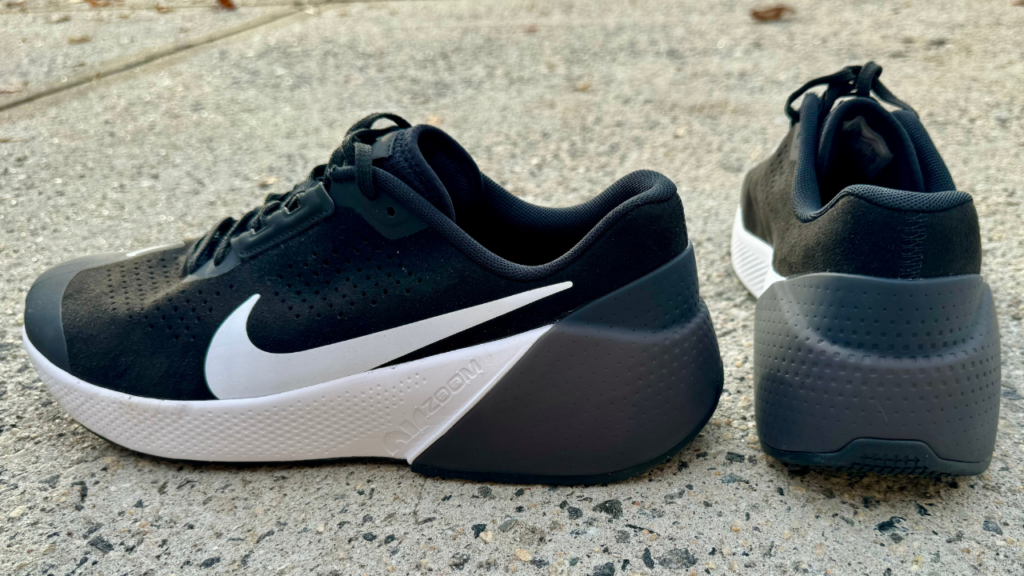
Training
Arune: As I’ve been reviewing more training shoes, I’ve become incredibly suspicious of any training shoe that claims to be a “do-it-all” trainer.
Unfortunately, that’s true for the Nike Air Zoom TR 1, which is a training shoe with an identity crisis in large part due to the things that do work.
For example, the full-length Zoom Strobel is incredibly comfortable (which we’ll discuss more because there are real challenges) but that results in a bounciness when it compresses – which is exactly what I don’t want with squats, deadlifts, cleans, and, worst of all, snatches.
Now that may be fun for some plyometrics or explosive bodyweight movements, but that lack of stability is an absolute nightmare in the gym that forces you to change how you do those aforementioned movements to make the Nike Air Zoom TR 1 work.
This won’t be so bad if you’re focused on lighter weights, but I think you’re risking real injury with any kind of heavier weights. It’s also made worse by how this shoe rolls you onto the front of your toes, not unlike the Saucony Freedom Crossport (which is the closest training shoe comparison I can make).
I should note that the outsole is really grippy. Traction has continued to be a strength of Nike training shoes. There, I said something nice, Drew.
More than anything else, I was very confused (a word I’ll use a bit) about the target audience for this shoe based on its performance. If you can’t do heavy lifts in this shoe and it messes with your mechanics, what’s the upside?
Drew: Arune doesn’t understand not lifting heavy when you’re at the gym. That’s understandable if you’ve seen the guy’s arms. He goes to the gym to efficiently throw around lots of weight.
The Nike Air Zoom TR 1 and its full-length Zoom Strobel are super comfy underfoot. And the side-to-side stability is very good thanks to how far down the foot sits inside the massive heel piece. With such good lockdown and underfoot comfort, it’s a shoe built for more passive gym-goers.
You know the type. Lifts a little, does a little cardio, and maybe throws in a set or two of plyometrics. But they also use the shoes for lots of pre and post-workout errands.
I say that because it’s clear this is not a squatting or deadlift shoe. It’s too bouncy and the drop feels too high. It works fine on upper body day though.
However, even when it does work, the upper is curious. Why is Nike using a synthetic suede upper on a training shoe in 2023? It doesn’t make sense. Synthetic suede isn’t tough enough to endure the rigors of the gym and will start to look awful if subjected to outdoor bootcamp-style workouts.
I know $130 is almost a budget price these days but I would’ve much preferred a hearty engineered mesh upper instead of synthetic suede. The synthetic suede just screams casual shoe and lessens the Nike Air Zoom TR 1’s credibility as a workout shoe.
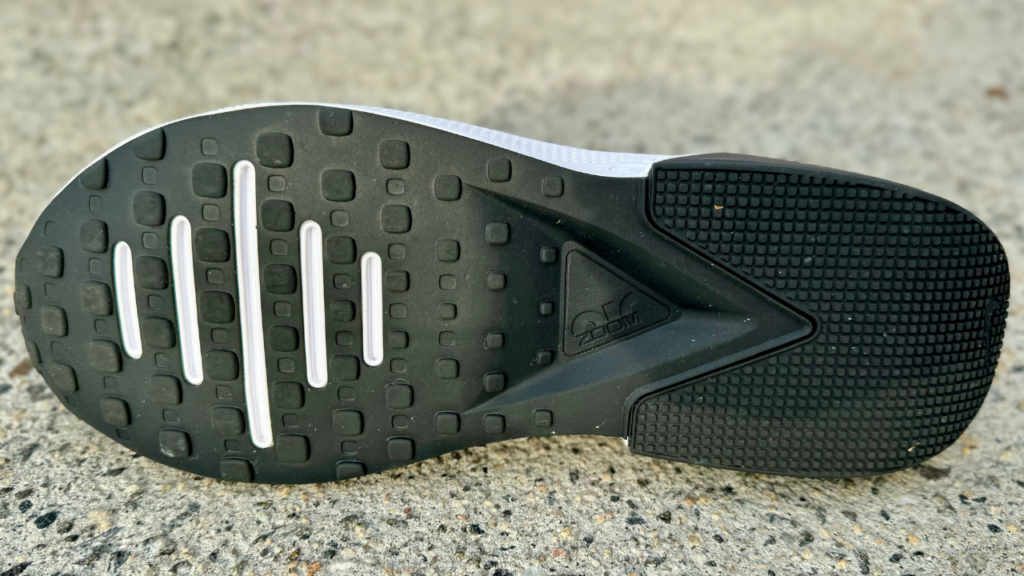
Cardio
Arune: I compared the Nike Air Zoom TR 1 to the Saucony Freedom Crossport and there might be no category where that is more true than in cardio performance.
Putting aside comfort issues (more on that to come), the full-length Zoom Air made the Nike Air Zoom TR 1 much more comfortable for running than your typical training shoe that I feel doesn’t give you much bounce or energy return.
The TR 1 also worked well on an air bike, but the midsole got in the way on the rower – that bounce threw me off and I felt like I couldn’t properly plant my legs to drive through the rowing motion. I abandoned these for my rowing needs after 15 minutes in each session as I worried about further injuring my right knee (which recently took a beating) and I never had a real desire to try these again after those five sessions.
I wouldn’t say I HATED the cardio experience in the Nike Air Zoom TR 1, but they’re not exactly great at cardio. Once again, I don’t think this is the “do it all” shoe that Nike promises. As with lifting, I was confused by the upside of choosing this shoe over the multitudes of other options, whether it’s a specialized running shoe or a more effective training shoe like the Reebok Nano 2.0 or Adidas Dropset Trainer 2.
How did it go for you, Drew?
Drew: About the same. The Nike Air Zoom TR 1 isn’t fun for cardio. The Zoom Air strobel offers plenty of cushion but the heel cup and outsole combo are clunky.
Anything outside of short sprints will annoy you due to the clomping sound each footfall makes. Despite the outsole being one piece, the heel and forefoot feel somewhat disconnected and hit the ground accordingly.
The Nike Air Zoom TR 1 will break in over time but it can never quite overcome its own stiff build. I felt the stiffness during any cardio.
That said, I didn’t have any problems with rowing like Arune. Maybe it’s my time playing basketball and wearing many overly bouncy shoes to hoop, but I felt perfectly comfortable on any rowing machine.
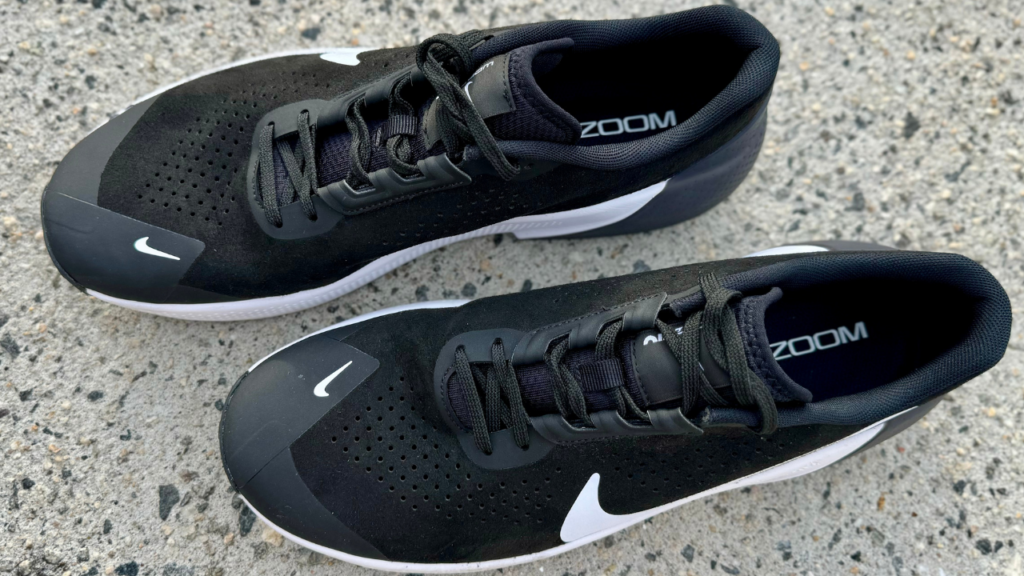
Comfort
Arune: As someone with a wide forefoot, I find it’s always a coin flip when I put on a Nike shoe.
And, unfortunately, this is another shoe where the coin flip didn’t end up in my favor.
I knew the Nike Air Zoom TR 1 would be a problem the minute I tried fitting my foot in the very narrow and restrictive upper. While I technically did get my foot in there, my forefoot felt like it was being crushed. Maybe going up half a size would help, but it’s so narrow that I’m highly skeptical.
And then let’s talk about that upper. The synthetic suede upper made my foot sweatier than wearing a wool suit on a hot Los Angeles summer day. My socks were absolutely drenched and my foot felt incredibly uncomfortable as a result.
The TL;DR is this – from the moment I put this shoe on, I couldn’t wait to take it off my foot.
Drew: Like most Nike training shoes, the Nike Air Zoom TR 1 is narrow. The synthetic suede doesn’t help much. It does mold to your foot a bit but it’s not stretchy enough to help accommodate different foot types. You’ll love the fit if you’re a narrow footer but those with beefier feet should find something else on our best cross training shoes list.
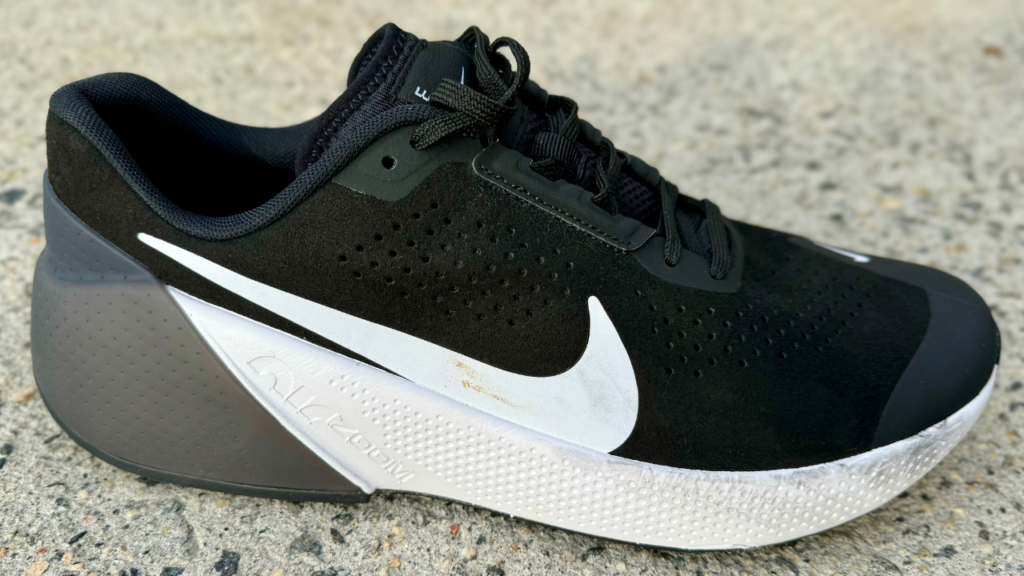
Aesthetics
Arune: I cannot tell you that this shoe looks bad, but I can’t tell you that it looks good either.
Everything about this shoe seems off – the midsole looks too thick and then just…ends with the heel guard. The lines on the upper look like a few different shoes were stitched together into something that just doesn’t look right to me.
The visuals are a microcosm of the Nike Air Zoom TR 1 – it doesn’t look the worst, but I’m not sure what the point of choosing this shoe is when there are numerous much better-looking training shoes from nearly every brand out there (including Nike).
Drew: While the Nike Air Zoom TR 1 looks basic to me, I can see the casual appeal. The simple classics like the Nike AF1 and Dunk are super popular nowadays. The TR 1 channels that type of energy. I think it acquits itself just fine in the casual arena.
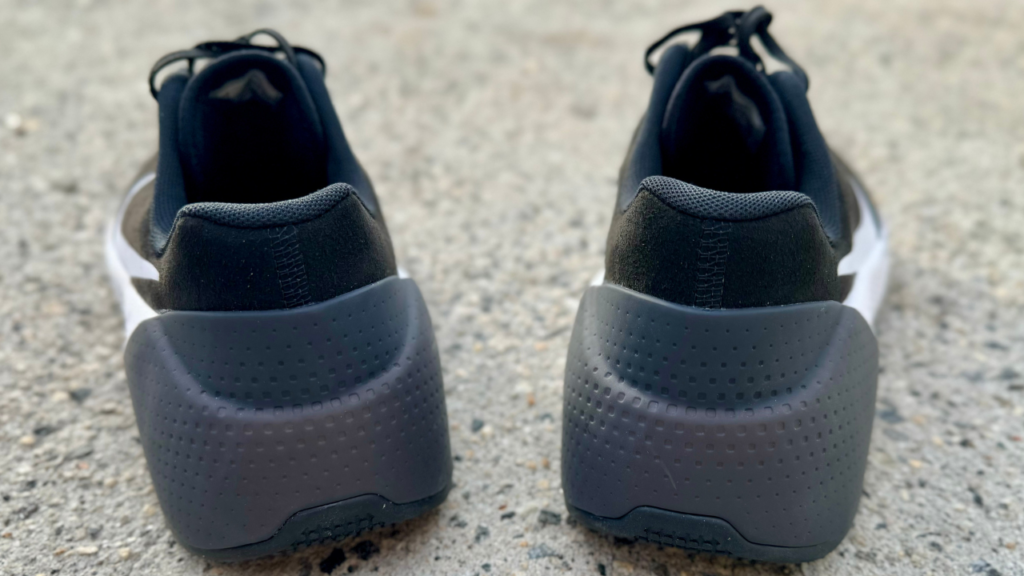
Is the Nike Air Zoom TR 1 worth $130?
Arune: This is priced at $130, which is what the Nike Metcon was priced at before the $20 jump this year.
I get the sense this is meant to be the “affordable” trainer but this feels like a shoe that should be $100 and aimed at a more casual training audience – which is what I imagine it will be when it hits the Nike outlets.
I applaud Nike for not trying to price this at $150 given that seems like the move for all functional fitness training shoes these days but I also think this is well overpriced for the performance – or lack thereof – that it delivers.
Honestly, it confuses me as to why this shoe exists – the Metcon is Nike’s “Do It All” training shoe and with only a $20 difference here, I don’t know that the price difference is enough for someone to not go for the flagship shoe.
Drew: Tech wise the Nike Air Zoom TR 1 delivers good value. Getting plenty of cushioning, a thick rubber outsole, and solid stability for $130 is usually a win. But, all the parts don’t work well enough together.
That leaves me agreeing with Arune. Nike should have removed some of the tech and put this in the $100-110 range as a budget training shoe.
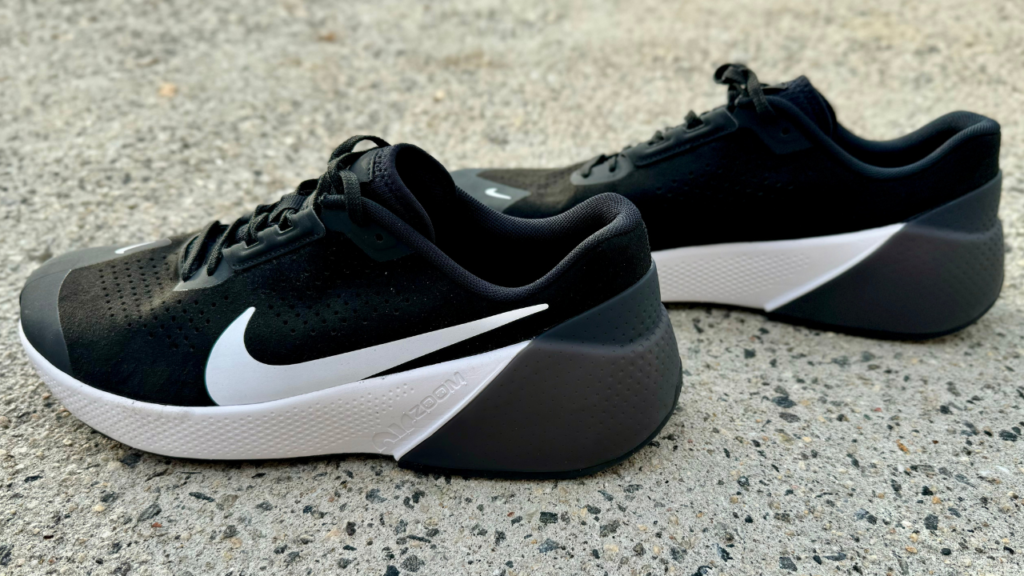
Nike Air Zoom TR 1 Summary
Arune: The Nike Air Zoom TR 1 is a training shoe without an identity or an advantage over its competitors, which means that it’s a hard one to recommend. I think more casual lifters or those more focused on HIIT training might enjoy it, but there’s much better value out there from lots of other companies.
It’s a shame that Nike didn’t create both a stronger and cheaper “value” training shoe, but this is one where I think widening the last and dialing down the bounce could result in an interesting second iteration.
But, as it stands, there’s nothing this shoe does well enough to warrant the purchase.
Drew: The Nike Air Zoom TR 1 is a middling option at best. Nike can solve this problem by choosing a path – a bouncy workout shoe meant for HIIT and plyometrics or a budget version of its more lifting-focused Metcon. By not choosing either path, Nike ended up with a shoe that just doesn’t have a good place in the current workout shoe world.
Here’s to hoping the design team at Nike makes a choice with the TR 2 and creates a shoe that’s really good at what it does instead of what we got with the TR 1, a shoe that doesn’t do anything particularly well.

